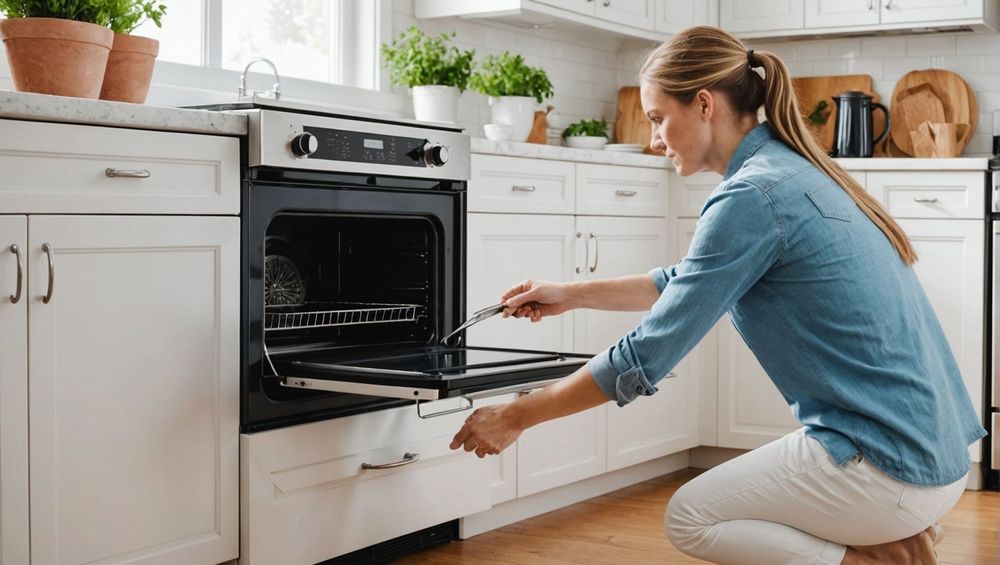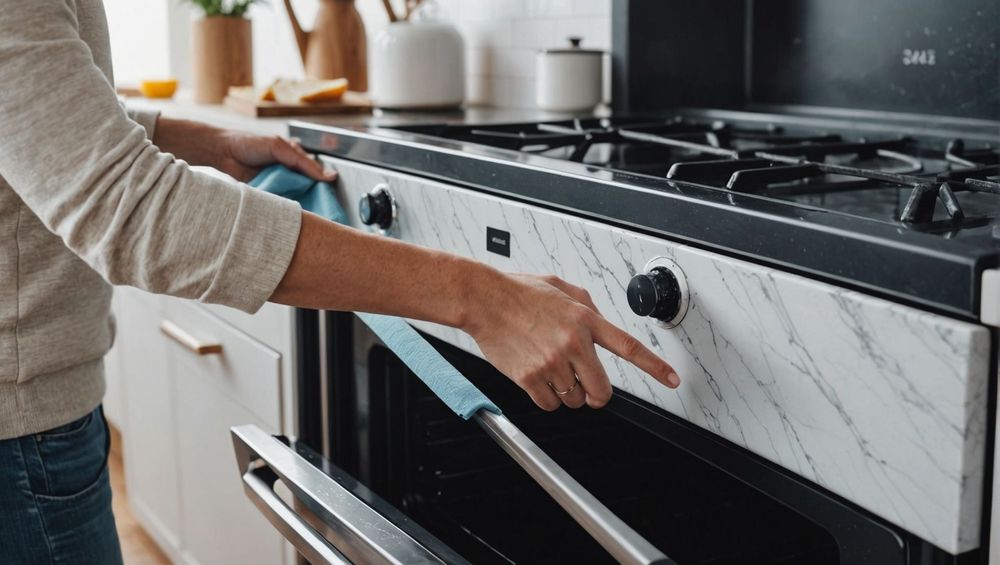Cleaning your oven is essential to maintain functionality, safety, and hygiene in your kitchen. Generally, it is recommended to clean your oven every three to six months, depending on how frequently you use it. This cleaning schedule helps prevent buildup that can lead to odors, smoke, or even potential fire hazards. However, certain circumstances might require more frequent cleaning. In this article, we’ll delve into the reasons why, how to maintain your oven, and provide guidance on proper cleaning techniques.
Why Regular Oven Cleaning is Important

Cleaning your oven regularly is vital for several reasons that go beyond mere aesthetics. Over time, food spills and splatters can accumulate, resulting in bad odors and even affecting the flavor of your meals. More critical is the fact that grease and grime buildup can become a fire hazard if left unattended. Regular maintenance can also prolong the life of your oven, helping it run more efficiently and reducing energy consumption. It’s also essential for maintaining a healthy cooking environment, free of bacteria and allergens.
Factors That Influence Cleaning Frequency

The frequency of cleaning your oven can depend on how often you use it and what you cook. For instance, if you frequently roast, broil, or bake dishes that splatter, you might need to clean it once a month. Here are a few factors to consider when determining your cleaning schedule:
- Cooking Frequency: Heavy users may find that cleaning every month is necessary.
- Type of Cooking: Greasy foods or recipes that bubble over require more attention.
- Oven Type: Self-cleaning ovens may need less manual cleaning, but their features should be used wisely.
- Life with Pets: Pet hair and dander can also get into your oven, which may necessitate more frequent checks.
- Allergies or Health Concerns: If someone in your home has allergies, keeping the oven cleaner might be a priority.
How to Maintain Your Oven Between Cleanings
While it’s essential to schedule deep cleanings, you can take several steps to maintain a clean oven between those sessions. Quick maintenance actions can prevent the buildup of grease and grime, making the eventual task easier. Here are some tips:
- Wipe Spills Immediately: As soon as your oven cools down, wipe away any spills to prevent them from hardening.
- Use a Baking Soda Paste: Apply a mixture of baking soda and water to greasy areas; it works effectively in removing residue.
- Inspect Regularly: Make a habit of doing a quick visual inspection every couple of weeks.
- Steam Cleaning Option: Utilize your oven’s steam cleaning feature if available, as it can help loosen grime without harsh chemicals.
Step-by-Step Guide to Deep Cleaning Your Oven
When it’s time for a deep clean, follow these steps for best results. Ensure you have the proper supplies, including baking soda, vinegar, water, a scrubbing sponge, and a microfiber cloth. Adhering to this method can keep your oven in peak condition:
- Prepare the Oven: Remove racks, foil, and any other items inside the oven.
- Make Your Cleaning Paste: Mix a cup of baking soda with water to make a thick paste.
- Apply the Paste: Smear the paste throughout the inside of the oven, avoiding heating elements.
- Let it Sit: Leave the paste in place for at least 12 hours to break down stubborn stains.
- Wipe Down the Oven: After waiting, use a damp cloth to wipe away the paste along with residue.
- Spray Vinegar: Lightly mist the surfaces with vinegar to neutralize any baking soda, then wipe clean.
In Conclusion
Maintaining a clean oven is not only beneficial for your cooking but also crucial for safety and hygiene in your kitchen. By establishing a routine cleaning schedule—ideally every three to six months—you can prevent food buildup and potential hazards. Additionally, by integrating simple maintenance practices into your cooking routine, you’ll find it easier to keep your oven in pristine condition longer. Remember that every kitchen is unique, so adjust these guidelines according to your specific needs.
FAQ
1. Can I use commercial oven cleaners?
Yes, commercial oven cleaners can be effective. However, ensure you follow the manufacturer’s instructions and use them in a well-ventilated area for safety.
2. How do I clean an oven without chemicals?
Natural cleaning solutions, such as baking soda and vinegar, are highly effective. They sanitize and clean without harmful fumes.
3. Is it safe to clean the oven while it’s still warm?
It’s best to let the oven cool down. Cleaning while warm can be dangerous and may lead to burns.
4. How do I determine if my oven needs cleaning?
If you notice unpleasant odors, smoke, or visible grease and grime, it’s time to clean your oven.
5. Can I put my oven racks in the dishwasher?
While some oven racks are dishwasher safe, others may warp. Check the manufacturer’s guidelines or clean them manually to be safe.
